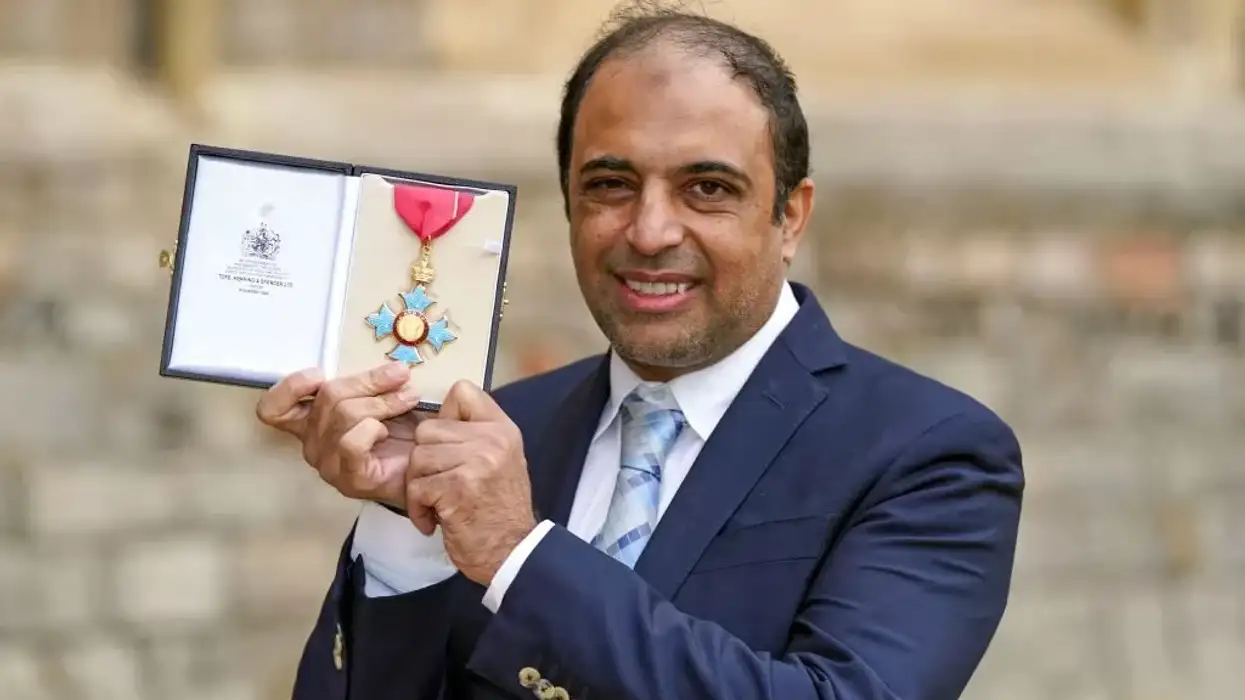IN THE world of private equity, timing is everything. It was a lesson Zuber Issa learned firsthand during his rapid ascent from a single petrol station to a global forecourt empire. While private equity investments propelled EG Group’s growth, they also played a pivotal role in his recent decision to part ways professionally with his brother Mohsin Issa.
The billionaire entrepreneur, aged 52, sold his 22.5 per cent stake in Asda, one of Britain’s largest supermarkets, and is now focusing on building his own forecourt business in the UK.
Speaking to the Sunday Times from his Blackburn office, Zuber reflected on his journey with his brother. The Issa brothers -Zuber and Mohsin - started from a single petrol station in Bury and built a forecourt empire spanning more than 6,000 sites worldwide. In 2020, they acquired Asda in a deal backed by private equity firm TDR Capital. However, their paths diverged in June 2024.
Zuber said the split was amicable and denied reports of a family rift. He clarified that Mohsin’s personal life changes, including his new marriage, did not cause any discord.
“When you’ve got a person who’s not happy in a marriage, and he finds happiness, you’re happy for him,” Zuber said, adding that he and his brother remain on good terms.
The primary reason for Zuber’s departure was a difference in vision with TDR Capital. While TDR wanted to list EG Group on the stock market to realise returns, Zuber was more concerned about his legacy and preferred to continue growing the business.
“It’s been rocket fuel all the way,” he said, “And then comes the time when the private equity guys say, ‘We need to realise a return.’”
Zuber now owns a forecourt business called EG On The Move, which he plans to expand significantly. He started with 34 sites, has grown to 47, and is set to acquire almost 100 more through a deal with Irish service-station operator Applegreen.
The expansion will push the company's turnover past £1 billion. “We’re going to be investing in the sites and creating more jobs,” Zuber said.
EG Group, still co-led by Mohsin, plans to float on the New York Stock Exchange, possibly under the name Cumberland Farms, a US convenience-store chain it acquired in 2019.
Zuber remains a non-executive director at EG but stressed that his new business is his priority. He acknowledged that a US listing made more sense as 60 per cent of EG’s earnings come from the US.
Reflecting on the decision to partner with TDR in 2015, Zuber admitted that he and his brother did not fully understand private equity. “If we did it all again, I would do it differently,” he said, hinting that he would have preferred to retain control rather than sell a majority stake. Despite this, he acknowledged that their journey with TDR was a success.
The brothers’ ambitious acquisition of Asda has faced challenges. Since the takeover, Asda’s market share has dropped from 14.8 per cent to 12.5 per cent, and sales fell by 4.8 per cent in the third quarter of 2024.
However, Zuber expressed confidence in Mohsin and TDR’s ability to turn things around by transforming Asda’s stores into destinations offering more than just groceries.
Zuber’s entrepreneurial journey began with his father, Vali, who arrived in the UK in 1968 with less than £100. The family lived modestly in Blackburn, and their father encouraged them to seize opportunities.
“Dad was a simple person,” Zuber said. “He used to always say, ‘Keep your feet on the ground.’”
Zuber plans to leave his new business to his family and has already involved his daughter Ammarah in the finance department.
Looking ahead, he hopes to focus more on charitable projects, including a mosque and burial ground he is building in Blackburn. “There’s a lot of clever people in the world, but it’s about taking opportunities and a bit of risk and being honest with each other,” he said.
Despite the challenges and changes, Zuber remains positive about his journey. “We can’t complain – this is the best journey we’ve ever had.” The brothers, now worth a combined £5bn, have proven that hard work and ambition can lead to extraordinary success.





